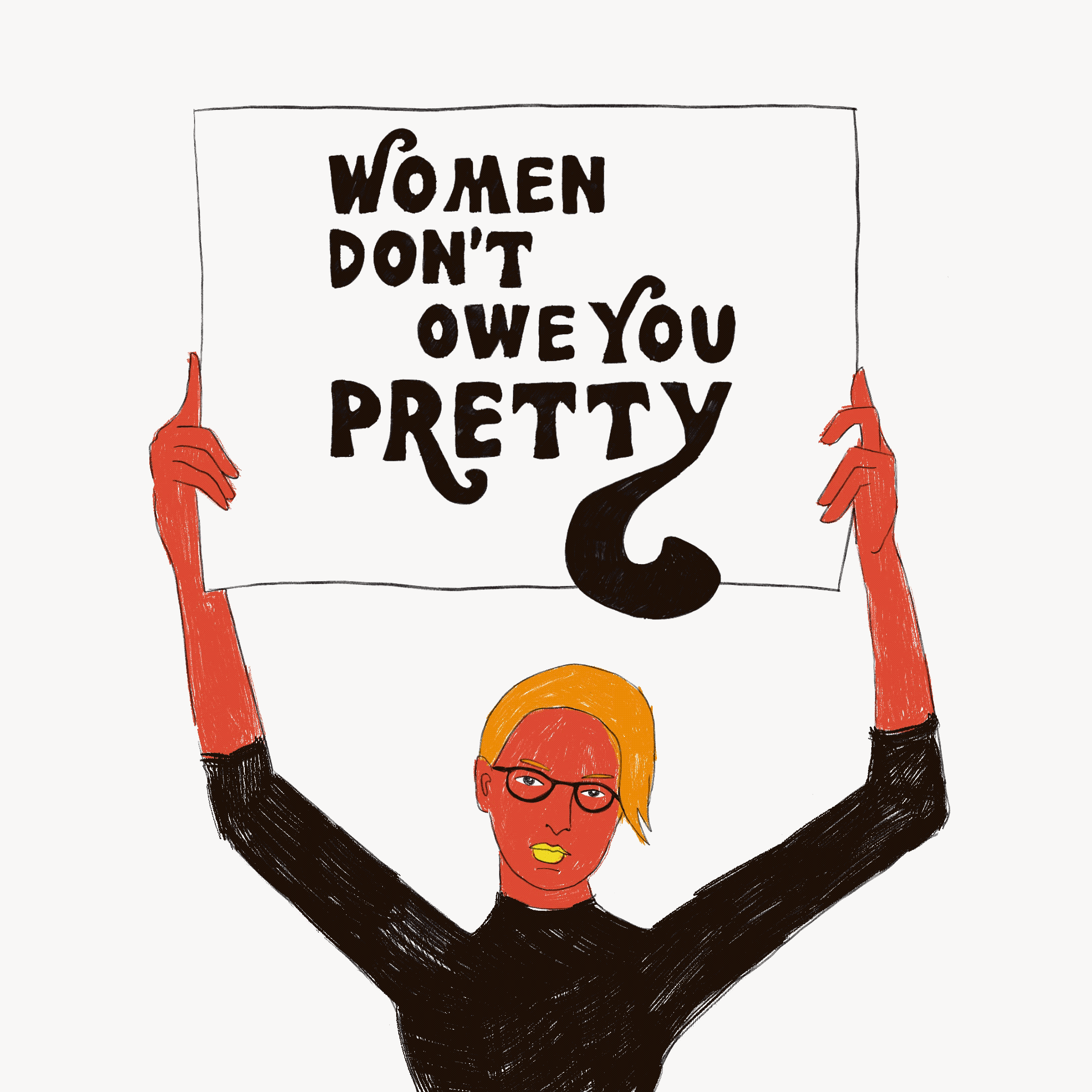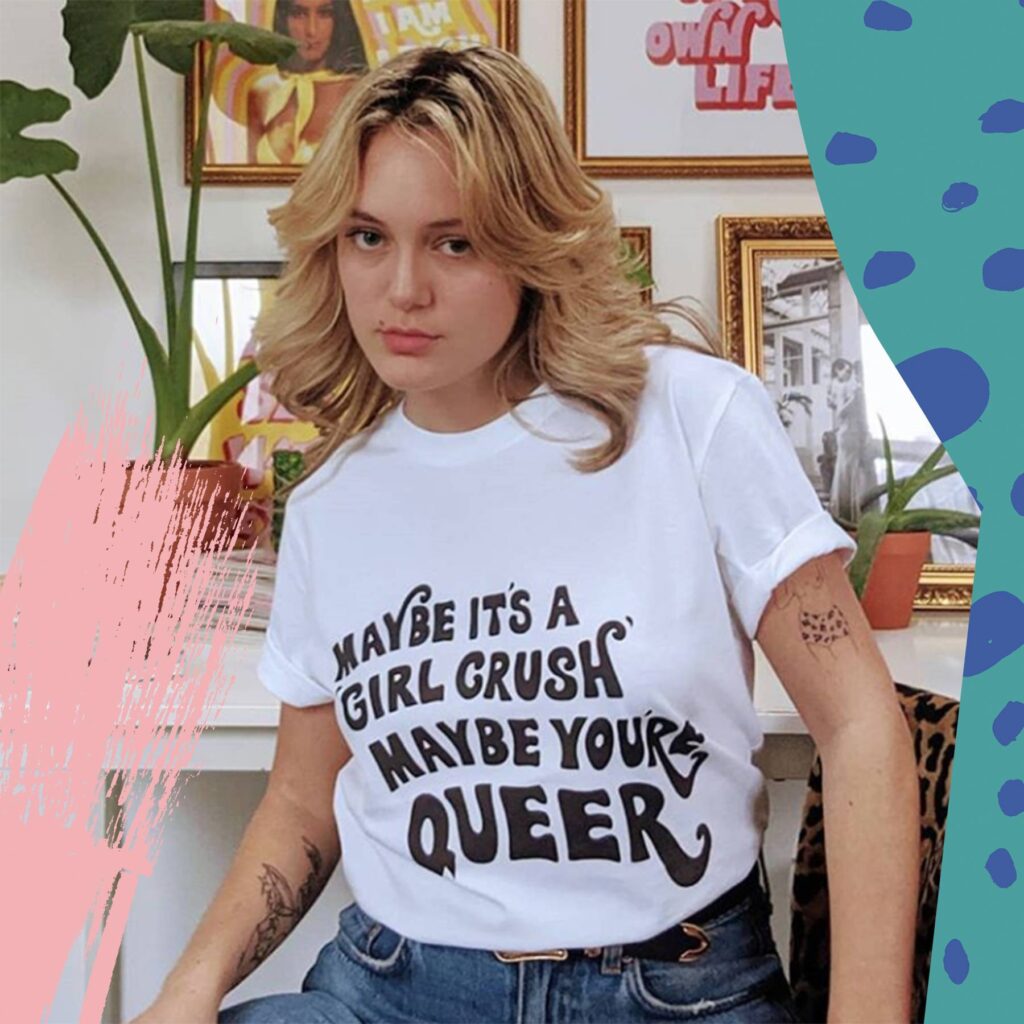This article was originally published by Palatinate, Durham’s independent student newspaper. You can read the original piece here.
When Florence Given released her debut, the now Sunday Times bestseller, Women Don’t Owe You Pretty, it was hailed by many women as ‘life-changing’, ‘fearless’ and ‘an incredible mouthpiece for modern intersectional feminism’. Does it live up to the hype?
Talking about feminism is hard. There are no two ways about it. My mother, like many of her generation, to this day, does not identify as ‘feminist’. (And yes, there’s been many a long and detailed discussion as to why the ‘man-hating, bra-burning political lesbian’ is not actually what modern feminism looks like or is all about.)
Feminism was considered intimidating and judgemental. I’m happy to report Florence Given does a lot to counteract that. Far from the 1970s rigid attitude of what it was to be feminist, she emphatically proclaims that ‘you’re not any less of a feminist for shaving’, blaming society and ‘pretty privilege’. She instead calls for women to ‘not be so judgemental to people who were doing the same thing as you recently.’
Interestingly, and very importantly, she also acknowledges the ways in which she is privileged, and encourages others to do the same. This denotes a change in trajectory away from the previous voice of white feminism that frequently synonymised the female experience with slavery, without acknowledging the offensiveness of using such a term when white and middle-class.
Given frequently expresses the further difficulties of black, fat and disabled women, lucidly expressing the necessity to recognise the varying levels of privilege within society. She promotes self-growth, and the importance of personal responsibility – whether that be to further inform yourself on topics you do not understand, or the creation of your own boundaries and their maintenance.
This is a book all about you: what’s damaging you, what is limiting you, but also what you are responsible for. Given asks us to question the role of personal responsibility and accountability in being the best versions of ourselves.
Actively tackling the fear of being the ‘angry woman’, her tone and accessible, relatable language exposes such indignation as (rightfully) acceptable. The ‘dump him’ movement that she promotes is perhaps a little jarring at first but gives a good message regarding self-preservation.
Whilst I think the culling of all who don’t make the cut is perhaps a little far at times (maybe give that friend/boyfriend/brother a chance to be educated, too, before ruthlessly cutting them from your life?), it is an important lesson on damage limitation and should be read as such. Focusing a lot on advertisement and social networking, she updates the likes of Naomi Woolf and Kate Millett’s philosophy on societal female pressures and pushes such critique into the mainstream.
Arguably a white, middle-class woman’s answer to Lizzo, Given preaches the notion that self-love is radical – and she’s right. In a society that quite literally capitalises on female insecurity, her aim is simple: empower women to love themselves, pushing them on track to personal happiness. Such a message cannot be overstated and is long overdue in mainstream literary discourse.
It was difficult for me to dig out anything negative about this book – though I did have a few minor qualms. First is that I wouldn’t go so far as to agree with Glamour’s claim that this is ‘an incredible mouthpiece for modern intersectional feminism.’ Given’s ‘privilege checklists’ are oversimplified and clichéd; she constantly mentions the ‘further difficulties’ of being black and disabled without going into very much detail about them at all and never mentions disabilities that may not be visible.
Her lack of experience as a black, overweight or disabled woman is not made up for with research and references (dropping Chidera Eggerue’s name every so often does not count) and her own personal experience is presented as every woman’s experience without properly stating its subjectivity. Whilst this makes for an intimate read, it does not necessarily make for a very intersectional one. However, despite a few contemptuously proclaiming it to be ‘just a long Instagram post’ this is exactly its USP: accessibility. This is not an academic masterpiece, nor should it be treated as such.
That being said, I’ll be giving my mum this book to try and discourage the fear surrounding the big F word – and I do encourage you to give it to everyone who struggles engaging with feminism (yes, that includes your boyfriend or that friend of his that rolls his eyes every time you mention the wage-gap or how yes, actually, it is harder to be a woman).
This book is an anti-shame, self-love bible. No, it’s not an academic break-down of cutting edge feminist critical theory; it is a little oversimplified at times and she really should have given a nice reading list at the end, but it’s definitely worth a read. If you wouldn’t buy it for yourself, it may still be worth giving it to someone else.
Written by Becky Percival.
Becky has just graduated from Durham University with a BA in English Literature and French. Lover of literature, philosophy and laughing out loud. She wishes someday of a job in the publishing sector, and harmonious and sustainable life on Earth, but for now is happy consuming as much fiction and feminist theory as she can get her hands on.
Illustrated by Dorottya Juhász.



